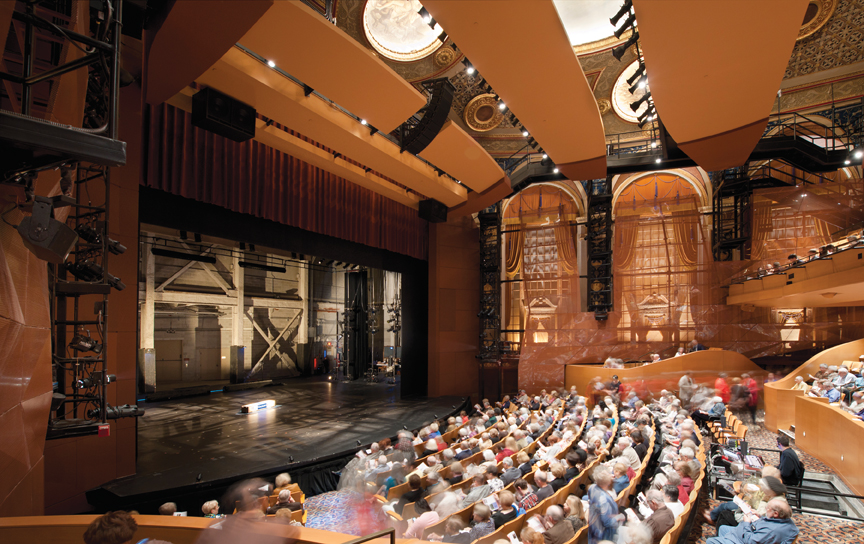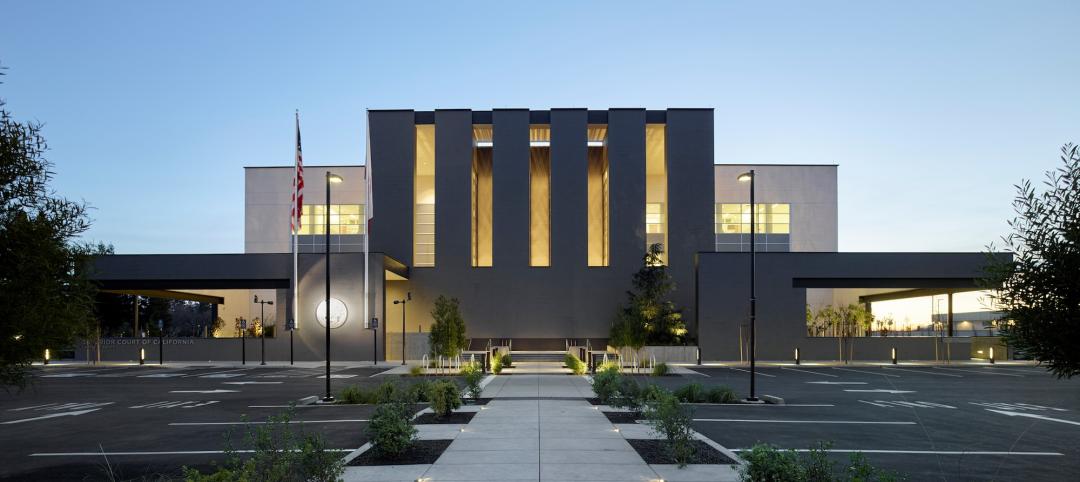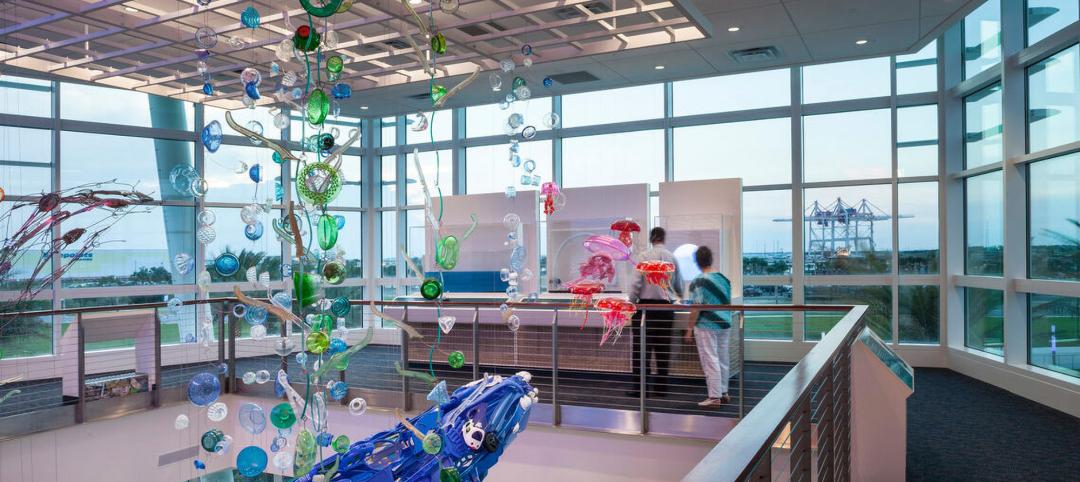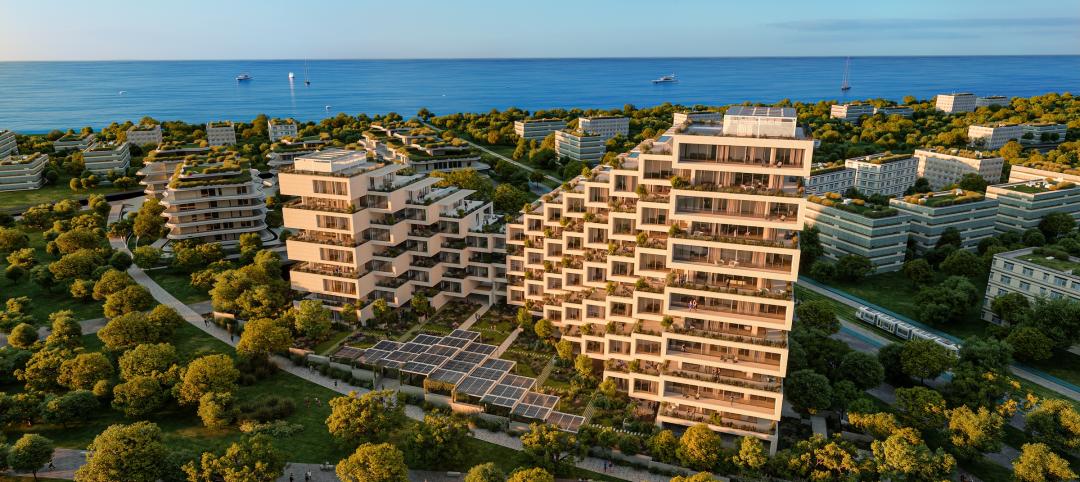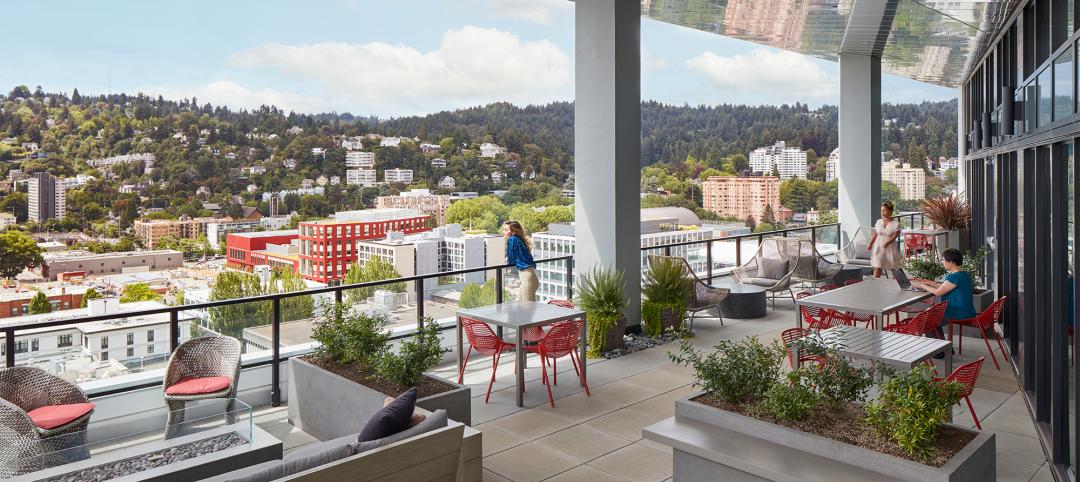Cleveland’s Allen Theatre opened in 1921 as a 3,080-seat movie house. It was spared from the wrecking ball in the 1970s. In the late 1990s it underwent a renovation that reduced the number of seats to 2,500, and it reopened in 1998 as a venue for live theatre. By 2010, it was marginally utilized, a victim of changes in the entertainment industry and the national economic downturn.
The reconstruction of the Allen Theatre was made possible by a unique collaboration among three organizations: the Cleveland Play House and Cleveland State University, each of which needed to build new performance facilities; and Cleveland’s PlayhouseSquare, the second-largest theatre district in the country (after New York’s Lincoln Center) and the largest total historic theatre district in history, with 10 renovated, reconstructed, and new insertion venues.
PROJECT SUMMARY
ALLEN THEATRE AT PLAYHOUSESQUARE
Cleveland, OhioBuilding Team
Submitting Firm: Westlake Reed Leskosky (architect, engineer)
Acoustician: Talaske and Associates
Construction manager: Turner Construction Co.General Information
Size: 81,500 sf (renovation), 44,000 sf (addition)
Construction cost: $30 million
Construction time: August 2010 to December 2011(Phase I) and January 2012 (Phase II)
Delivery method: CM with GMP
All three entities were clients of local architecture firm Westlake Reed Leskosky, which brought them together to fulfill their professional and educational agendas. WRL provided all architectural and engineering services, with Talaske and Associates as acoustician and Turner Construction Company as construction manager.
The $30 million project resulted in three new theatres in the existing 81,500-sf space and a 44,000-sf contiguous addition: the Allen Theatre, the Second Stage, and the Helen Rosenfeld Lewis Bialosky Lab Theatre.
The Allen Theatre was transformed into a 512-seat proscenium stage theatre. The space was downsized to improve acoustics and allow for vocal clarity without the need for amplification. New sidewalls featuring scrims of perforated metal were constructed, designed to reflect sound to patrons in and under the balcony. The area under the balcony was redeveloped into a lounge and pre-show events space.
The Second Stage is a transitional space that flexibly seats up to 348 and is equipped with seating wagons that can transform the stage area into multiple configurations. The Helen is a 150-seat black-box theatre for smaller performances and educational programs.
All three theatres were up and running by this past January. With the addition of these new venues, PlayhouseSquare expects at least 150,000 additional guests to patronize the renovated theatre district each year. +
Related Stories
Architects | Jan 10, 2024
Award-winning civic design firm RossDrulisCusenbery joins DLR Group
DLR Group today announced the acquisition of Sonoma, California based civic and public safety design firm RossDrulisCusenbery (RDC). The addition of RDC adds focused design excellence of new building types to DLR Group’s global Justice+Civic studio.
Museums | Jan 8, 2024
Achieving an ideal visitor experience with the ADROIT approach
Alan Reed, FAIA, LEED AP, shares his strategy for crafting logical, significant visitor experiences: The ADROIT approach.
Designers | Jan 8, 2024
DLR Group adds executive leaders
DLR Group Chief Executive Officer Steven McKay, AIA, RIBA, announced new executive leaders for the 100% employee-owned, globally integrated design firm.
AEC Tech | Jan 8, 2024
What's driving the surge of digital transformation in AEC today?
For centuries, the AEC industry has clung to traditional methods and legacy processes—seated patterns that have bred resistance to change. This has made the adoption of new technologies a slow and hesitant process.
K-12 Schools | Jan 8, 2024
Video: Learn how DLR Group converted two big-box stores into an early education center
Learn how the North Kansas City (Mo.) School District and DLR Group adapted two big-box stores into a 115,000-sf early education center offering services for children with special needs.
Green | Jan 8, 2024
DOE releases RFI on developing national definition for a Zero Emissions Building
The Department of Energy released a Request for Information (RFI) for feedback from industry, academia, research laboratories, government agencies, and other stakeholders on a draft national definition for a Zero Emissions Building.
Codes and Standards | Jan 8, 2024
Australia to be first country to ban engineered stone countertops
In 2024, Australia will be the first country to ban engineered stone countertops. The ban came after a years-long campaign supported by doctors, trade unions, and workers over concerns that the material was causing increased silicosis cases among workers cutting and handling it.
Roofing | Jan 8, 2024
Researchers devise adaptive roof tile concept that adjusts to ambient temperatures
Scientists at the University of California Santa Barbara published a paper that proposes adaptive roof tile technology that can adjust to ambient temperatures. Using a wax motor, tiles could switch from a heating or cooling state enabling savings on heating and cooling costs.
MFPRO+ News | Jan 4, 2024
Bjarke Ingels's curved residential high-rise will anchor a massive urban regeneration project in Greece
In Athens, Greece, Lamda Development has launched Little Athens, the newest residential neighborhood at the Ellinikon, a multiuse development billed as a smart city. Bjarke Ingels Group's 50-meter Park Rise building will serve as Little Athens’ centerpiece.
MFPRO+ Special Reports | Jan 4, 2024
Top 10 trends in multifamily rental housing
Demographic and economic shifts, along with work and lifestyle changes, have made apartment living preferable for a wider range of buyers and renters. These top 10 trends in multifamily housing come from BD+C's 2023 Multifamily Annual Report.


